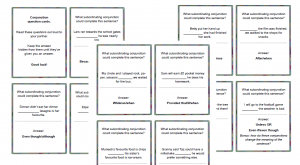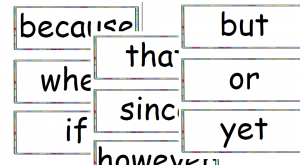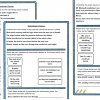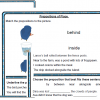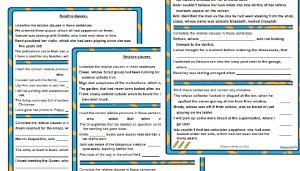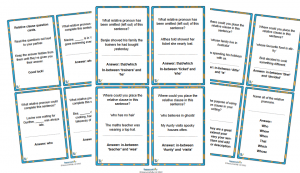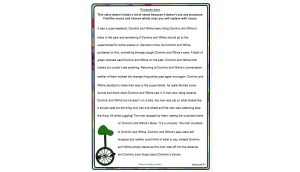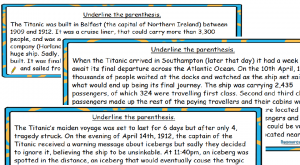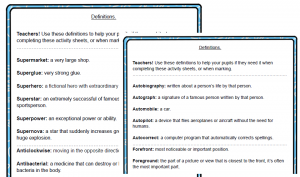Lower KS2 Conjunctions Bundle
£4.00
A range of activity sheets, game cards and display resources to support your teaching of conjunctions in LKS2.
Ideal for use in Lower Key Stage Two, builds on the work done in Year Two on subordinating conjunctions.
- Subordinating conjunction activity sheets with three levels of differentiation including a range of activities to help children recognise and understand the meaning of different subordinating conjunctions. Answers included.
- Subordinating conjunction passages, short paragraphs with three levels of differentiation where children need to identify the subordinating conjunctions used. Ideal as a short activity or a grammar session. Answers included.
- Coordinating conjunction activity sheets with three levels of differentiation including a range of activities to help children recognise and use different coordinating conjunctions. Answers included.
- Coordinating conjunction passages, short paragraphs with three levels of differentiation where children need to identify the coordinating conjunctions used. Ideal as a short activity or a grammar session. Answers included.
- Conjunction game cards. A range of questions including identifying the missing conjunction in a sentence, discussing the effectiveness of a conjunction and explaining how different conjunctions can change the meaning of a sentence. Answers included.
- Conjunction display cards.
National Curriculum Links – Years 3 and 4
Pupils should be taught to extend the range of sentences with more than one clause by using a wider range of conjunctions, including when, if, because, although.
Use conjunctions to express time and cause.
Assessing the effectiveness of their own and others’ writing and suggesting improvements.
![]()
Subordinating conjunctions: when, because, if, that, however, although.
Coordinating conjunctions: and, but, or.
![]() Subordinating conjunctions: when, because, if, that, however, although, as, until, before, while, even though.
Subordinating conjunctions: when, because, if, that, however, although, as, until, before, while, even though.
Coordinating conjunctions: and, but, or, so, yet.

Subordinating conjunctions: when, because, if, that, however, although, as, until, before, while, even though, since, provided that, unless.
Coordinating conjunctions: and, but, or, so, yet, for, nor.
Related products
Subjects
Grammar
Grammar
Free Resources






